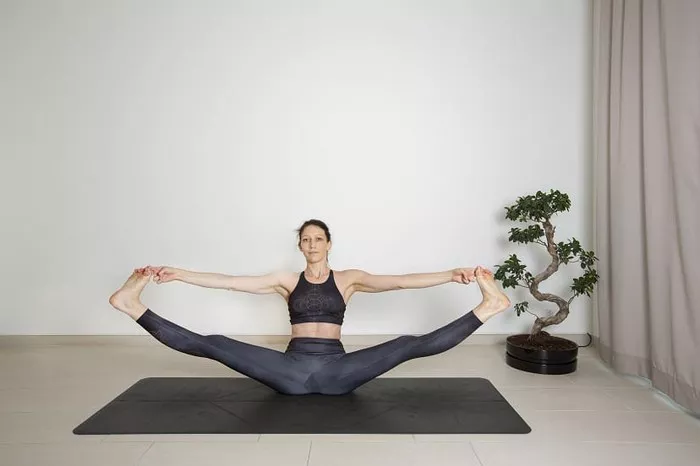Sivananda Yoga is one of the most popular and holistic approaches to yoga practice worldwide. Developed by the renowned spiritual teacher Swami Sivananda in the mid-20th century, this system has gained a significant following due to its comprehensive and integrative approach to both physical and mental well-being. Rooted in traditional yogic philosophies, Sivananda Yoga emphasizes the balance of body, mind, and spirit through a series of carefully designed practices. In this article, we will explore the benefits of Sivananda Yoga, including its positive effects on physical health, mental clarity, emotional well-being, and spiritual growth.
The Essence of Sivananda Yoga
Before we delve into the benefits, it’s important to understand the core philosophy behind Sivananda Yoga. This style of yoga is based on five essential principles:
Proper Exercise (Asanas): Physical postures that promote strength, flexibility, and overall health.
Proper Breathing (Pranayama): Breathing exercises designed to control the vital life force, or prana, within the body.
Proper Diet (Vegetarianism): A balanced, plant-based diet to nourish the body and mind.
Proper Relaxation (Savasana): Relaxation techniques to relieve stress and tension, allowing the body to restore and rejuvenate.
Positive Thinking and Meditation (Vedanta and Dhyana): Cultivating a peaceful and positive mindset through meditation and self-awareness.
These principles guide practitioners towards a harmonious lifestyle, focusing on maintaining physical health, mental calmness, and spiritual wisdom.
Physical Benefits of Sivananda Yoga
1. Enhanced Flexibility
One of the primary physical benefits of Sivananda Yoga is its ability to increase flexibility. The asanas (postures) practiced in Sivananda Yoga are designed to stretch and strengthen different muscle groups, helping to improve flexibility in the joints and muscles. As practitioners regularly engage in the practice, they begin to notice greater mobility in areas that are often stiff or restricted, such as the hips, spine, and shoulders. Increased flexibility also helps to prevent injuries, as the body becomes more adaptable to various physical movements.
2. Strengthened Muscles
Sivananda Yoga involves a series of dynamic asanas that engage multiple muscle groups at once. These postures, performed mindfully and with proper alignment, not only stretch muscles but also strengthen them. For example, poses such as downward dog, plank, and warrior poses challenge the body to build endurance and muscle tone. Regular practice leads to stronger core muscles, improved posture, and greater overall physical resilience.
3. Improved Circulation
The practice of Sivananda Yoga emphasizes full-body movement, which enhances blood circulation. Many of the asanas involve inversions (such as headstand or shoulder stand), which help to reverse the effects of gravity on the body and promote blood flow to the upper body and brain. This increased circulation helps to oxygenate the tissues, facilitating detoxification and promoting overall vitality. Moreover, improved circulation can alleviate conditions such as cold hands and feet, varicose veins, and muscle stiffness.
4. Detoxification
Through its combination of physical postures, breath control, and relaxation techniques, Sivananda Yoga facilitates the body’s natural detoxification processes. The practice encourages the elimination of toxins stored in the muscles, organs, and lymphatic system. Sweating, which is often triggered during yoga practice, further supports detoxification by releasing impurities through the skin. A regular Sivananda Yoga practice can leave you feeling lighter, with clearer skin and improved digestion.
5. Improved Balance and Coordination
Sivananda Yoga includes many balancing poses, such as tree pose and warrior III, that help to enhance balance, stability, and coordination. These postures require the practitioner to engage their core muscles and focus on maintaining steady equilibrium. As you develop strength in the legs and core, your overall sense of balance improves. Better balance not only benefits your yoga practice but also translates into greater stability and coordination in daily activities, reducing the risk of falls or injuries.
Mental and Emotional Benefits of Sivananda Yoga
1. Reduced Stress and Anxiety
One of the most significant mental benefits of Sivananda Yoga is its ability to reduce stress and anxiety. The practice incorporates deep breathing exercises (pranayama) and meditation techniques that help calm the mind and activate the parasympathetic nervous system, which is responsible for the body’s relaxation response. Techniques such as alternate nostril breathing (Nadi Shodhana) and breath awareness can reduce stress hormones like cortisol and increase levels of endorphins, leading to a greater sense of calm. As practitioners learn to quiet the mind, they experience a deeper sense of peace and tranquility.
2. Improved Mental Clarity and Focus
Sivananda Yoga also emphasizes the development of mental clarity and focus through the practice of meditation and mindfulness. The combination of physical postures, controlled breathing, and meditation helps to still the mind and cultivate an increased sense of concentration. Over time, practitioners become more mindful of their thoughts, emotions, and actions, learning to respond to life’s challenges with greater calmness and clarity. This heightened focus can improve decision-making, enhance creativity, and foster a greater sense of purpose in life.
3. Emotional Healing and Stability
Emotional healing is another key benefit of Sivananda Yoga. The practice encourages self-awareness and self-acceptance, allowing practitioners to process and release pent-up emotional tension. As the body becomes more relaxed through the practice of asanas and pranayama, emotional blockages may surface, providing an opportunity for healing. By practicing positive thinking, meditation, and cultivating compassion, practitioners are better equipped to manage difficult emotions such as anger, sadness, or fear. Over time, Sivananda Yoga fosters emotional stability, resilience, and a sense of inner contentment.
4. Better Sleep Quality
With its focus on relaxation and stress reduction, Sivananda Yoga can also significantly improve sleep quality. The practice encourages the release of tension in both the body and mind, making it easier to fall asleep and enjoy deeper, more restorative rest. In particular, postures such as forward bends and restorative poses can activate the body’s relaxation response, signaling to the nervous system that it is time to rest. Additionally, incorporating breathing exercises and meditation before bed can calm the mind and promote a peaceful transition into sleep.
Spiritual Benefits of Sivananda Yoga
1. Increased Self-Awareness
Sivananda Yoga is not just a physical practice but a holistic path towards spiritual growth. One of the core principles of Sivananda Yoga is the cultivation of self-awareness through regular practice. By focusing on the breath, practicing mindfulness, and observing the thoughts, practitioners begin to deepen their understanding of the self. The physical asanas also serve as a moving meditation, allowing individuals to connect with their inner state and explore their true nature. Through this process, individuals may develop a greater sense of self-compassion and clarity regarding their life’s purpose.
2. Spiritual Growth and Enlightenment
Sivananda Yoga is deeply rooted in the traditional teachings of Vedanta, which emphasizes the unity of all beings and the ultimate goal of self-realization. Through regular practice, practitioners work towards spiritual enlightenment, which involves transcending the ego and realizing their true essence. Meditation (dhyana), one of the central aspects of Sivananda Yoga, plays a key role in this process. It allows the mind to quieten, enabling practitioners to experience higher states of consciousness. Ultimately, Sivananda Yoga is designed to lead individuals on a journey of spiritual awakening, helping them align with their highest self and attain inner peace.
3. Connection with the Divine
Sivananda Yoga also fosters a deep connection with the divine, however, one chooses to define it. By incorporating devotional practices such as chanting (mantras) and affirmations, practitioners cultivate a sense of surrender and devotion to a higher power. This spiritual connection fosters a sense of gratitude, humility, and compassion for all beings, promoting peace and harmony in one’s life and in the world.
Conclusion
Sivananda Yoga offers a wide range of benefits that extend beyond just physical health. By integrating the principles of proper exercise, breathing, diet, relaxation, and positive thinking, it creates a holistic approach to well-being. The physical benefits of Sivananda Yoga, such as increased flexibility, strength, and circulation, are complemented by mental and emotional improvements, including reduced stress, greater focus, and emotional stability. Furthermore, Sivananda Yoga offers a path of spiritual growth, helping practitioners cultivate self-awareness, spiritual insight, and a deeper connection with the divine.
Whether you are looking to improve your physical health, manage stress, or deepen your spiritual practice, Sivananda Yoga provides a comprehensive and transformative practice that can benefit people of all ages and fitness levels. It offers a timeless and inclusive approach to health and wellness that nurtures the body, mind, and spirit in equal measure. By making Sivananda Yoga a part of your life, you are embarking on a journey toward greater balance, peace, and fulfillment.
Related topics























